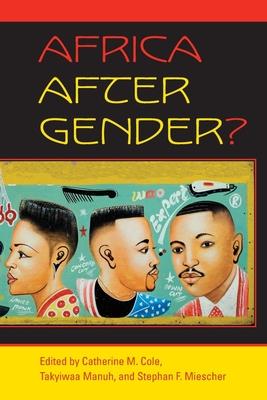Gender is one of the most productive, dynamic, and vibrant areas of Africanist research today. But what is the meaning of gender in an African context? Why does gender usually connote women? Why has gender taken hold in Africa when feminism hasn't? Is gender yet another Western construct that has been applied to Africa however ill-suited and riddled with assumptions? Africa After Gender? looks at Africa now that gender has come into play to consider how the continent, its people, and the term itself have changed. Leading Africanist historians, anthropologists, literary critics, and political scientists move past simple dichotomies, entrenched debates, and polarizing identity politics to present an evolving discourse of gender. They show gender as an applied rather than theoretical tool and discuss themes such as the performance of sexuality, lesbianism, women's political mobilization, the work of gendered NGOs, and the role of masculinity in a gendered world. For activists, students, and scholars, this book reveals a rich and cross-disciplinary view of the status of gender in Africa today.
Contributors are Hussaina J. Abdullah, Nwando Achebe, Susan Andrade, Eileen Boris, Catherine M. Cole, Paulla A. Ebron, Eileen Julien, Lisa A. Lindsay, Adrienne MacIain, Takyiwaa Manuh, Stephan F. Miescher, Helen Mugambi, Gay Seidman, Sylvia Tamale, Bridget Teboh, Lynn M. Thomas, and Nana Wilson-Tagoe.

Africa After Gender?
Gender is one of the most productive, dynamic, and vibrant areas of Africanist research today. But what is the meaning of gender in an African context? Why does gender usually connote women? Why has gender taken hold in Africa when feminism hasn't? Is gender yet another Western construct that has been applied to Africa however ill-suited and riddled with assumptions? Africa After Gender? looks at Africa now that gender has come into play to consider how the continent, its people, and the term itself have changed. Leading Africanist historians, anthropologists, literary critics, and political scientists move past simple dichotomies, entrenched debates, and polarizing identity politics to present an evolving discourse of gender. They show gender as an applied rather than theoretical tool and discuss themes such as the performance of sexuality, lesbianism, women's political mobilization, the work of gendered NGOs, and the role of masculinity in a gendered world. For activists, students, and scholars, this book reveals a rich and cross-disciplinary view of the status of gender in Africa today.
Contributors are Hussaina J. Abdullah, Nwando Achebe, Susan Andrade, Eileen Boris, Catherine M. Cole, Paulla A. Ebron, Eileen Julien, Lisa A. Lindsay, Adrienne MacIain, Takyiwaa Manuh, Stephan F. Miescher, Helen Mugambi, Gay Seidman, Sylvia Tamale, Bridget Teboh, Lynn M. Thomas, and Nana Wilson-Tagoe.